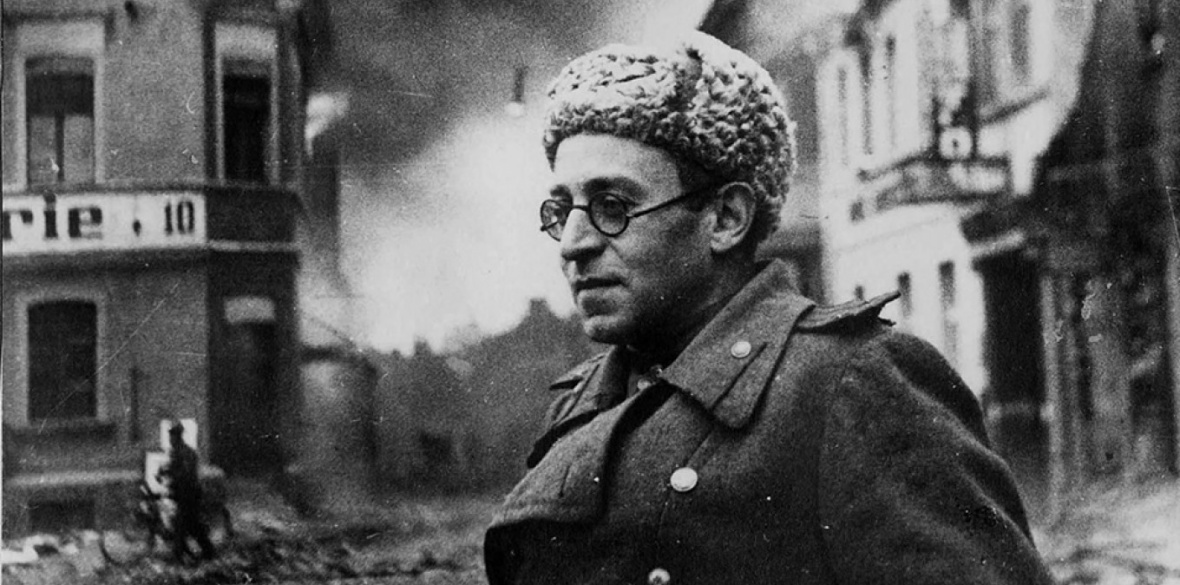This is the last article you can read this month
You can read more article this month
You can read more articles this month
Sorry your limit is up for this month
Reset on:
Please help support the Morning Star by subscribing here
Stalingrad
by Vasily Grossman
(Harvill Secker, £25)
THESE days, superlatives can be overused, resulting in truly great achievements being devalued.
Yet no-one can doubt that Vasily Grossman’s Life and Fate deserves the highest accolade. So too with its prequel Stalingrad, now published for the first time in English.
There is evidence to suggest that this great Soviet writer intended the two works to be one monumental statement of humanity’s suffering and surviving the cataclysm of the second world war.
As a special correspondent for the Red Army newspaper The Red Star, Grossman witnessed and reported on virtually all the major actions of the war, from the initial Soviet retreats before the nazi blitzkrieg through to the final victory in Berlin.
In 1942 he was posted to the armageddon of Stalingrad, where the crucial battle marking the turning point of the German invasion and the whole war was fought.
More than a novel, more than a history, more than graphic imagery, Stalingrad is written with an acute insight into the relationships of people caught up in the momentous tectonic shifts of history.
A truly symphonic work, it initially captures the fluctuating rhythms and moods of domestic life under the pall of the foreboding menace.
The vast dramatic personae include characters from all walks of life and, while Grossman does not gloss over the difficulties in Soviet society, he recognises that the majority of people have abiding faith in their new world.
Some slept badly, frightened by the likelihood of air raids, others had total confidence in the Soviet anti-aircraft defences. “And yet,” Grossman writes, “life still went on, as it always had, bound by all the usual ties of family, friendship and workplace.”
The characters we have come to know as closely as those around us are thrown into the cauldron of the most savage, cruel and relentless conflict.
With cinematographic power, Grossman at the same time relives and observes the desperate resistance of the beleaguered and increasingly crushed military and civilian defenders of the vital city, gateway to the oil riches of the Caucasus.
The battle, joined at this modern Thermopylae not with swords and spears but with all the power of modern mechanised warfare, would appear incredible except for the evidence of those who lived through it.
Robert and Elizabeth Chandler’s superb translation and editing of the various texts its author produced in response to alternating waves of official censorship captures Grossman’s poetic intensity, bringing home the pain and the pity of a dying city.
“There is a power that can raise huge cities from the dust but no power in the world can lift the almost weightless eyelashes that have close over the eyes of a dead child,” Grossman writes.
Short chapters move the narrative at speed, taking the reader into the claustrophobic bunkers of the home army and visits their opponents in the confident Wehrmacht positions and even explores the demented psychology of their leader.
The novel’s scope ranges from great set pieces, from the sacrificial last-stand defence of the railway station to allow new Soviet relief armies to cross the Volga through philosophical discussions on how nazi Germany could have emerged from that nation’s history, to great moments of peace in the midst of a raging war where Grossman reveals his deep love of his vast country.
Grossman poses the question of whether all the anguish will be remembered in centuries to come — the stones of huge buildings and the glory of generals endures but human suffering does not.
Tears and whispers, a cry of pain and despair, the last sighs and groans of the dying — all this disappears along with the smoke and dust blown across the steppe by the wind.
That question is answered by his own creative testimony in these two great works.











